

Cornwall & Isles of Scilly LSIP Quarterly Forum #1
Tuesday 26th March – Callywith College

Agenda
10.00am Arrival, registration, tea / coffee & get to know fellow delegates
10.20am Please take your seats
10.25am Welcome & how the session will work
LSIP Update from FSB
10:40am LSIF
Overview from project lead Charli Styles
10:45am LSIF: 5-minute updates from the partners
• Truro &Penwith
• Cornwall College
• The Focus Training Group
• Cornwall Marine Network
11:05am Cornwall Council Updates (inc. AEB and Cornwall Opportunities)
11:15am Q&A
11:30am Coffee break
11:45am Growth Hub / Skills Hub Update
12.00pm Workshop table task (5 mins to explain and 25 mins in workshop format)
12.30am Feedback and notes for LSIP next steps (with panel of speakers to answer questions)
1pm Lunch and networking (followedby a tour of the college)

LSIP – What & Why
The CIoS LSIP has been instigated, funded and is overseen by the Department for Education.

It is driven by the evidenced needs of Cornwall & Isles of Scilly businesses and informed by local strategic priorities such as those laid out in the Local Industrial Strategy, Vision 2030, Ten Opportunities and the Good Growth Investment Plan
Statistics from ONS, Lightcast, curriculum mapping, gap analysis, ongoing business engagement and other sources are also used to ensure that improvements will be measured and meaningful.


Stage 1: Development (September 2022
Local Skills Improvement Plans (LSIPs) aim to:
• place employers at the heart of local skills systems;
• facilitate more direct and dynamic working arrangements between employers and providers to help ensure provision better matches employer needs;
• enable learners to gain the skills they need to get good jobs and increase prospects;
Since autumn 2022, employer representative bodies (ERBs) have engaged thousands of local businesses regarding their skills needs, helping them to forge new, dynamic relationships with local providers and stakeholders.
Being employer-led and locally owned, LSIPs are uniquely placed to set out the key changes needed in a local area to help make technical education and training more responsive to local employer and labour market needs. Furthermore, to ensure real traction with key stakeholders, LSIPs have been placed on a statutory footing, through the Skills and Post-16 Education Act 2022.




On 11 August 2023, all 38 areas of the country published their LSIPs.

LSIPs: Key Findings and Analysis from across LSIPs

The Plans contain a wealth of employer intelligence regarding local skills needs and the type of changes that local areas are proposing to meet these needs – and DfE is using a variety of methods, including artificial intelligence (AI) / large language models (LLM), to help identify and analyse themes across all 38 LSIPs.
NOTE: LSIPs do not aim to provide specific or quantitative output of the numbers of jobs/ skills expected in an area. It is not possible to calculate the aggregate local skills plan with quantitative output.
Sectors identified as a priority across the 38 LSIPs:
Key transferable skills identified:
ICT
and digital literacy skills
Leadership skills
Adaptability skills
Literacy skills
Basic
Skills and English and Maths
Stage 2: Implementation and Review (August 2023 – March 2025)
• The objective of stage 2 is embedding the LSIP process in the local skills system. Each designated ERB will be expected to galvanise collaborative action with local employers, providers and stakeholders, to support the delivery of the actionable priorities and the roadmap set out in the LSIP.
• The designated ERBs need to regularly review their LSIP and will be expected to provide an annual progress report in June ’24 and ’25.
• The next development phase for each LSIP will commence following completion of the Spending Review in 2025 – we have also committed at this point to reviewing all the LSIP geographies and, where relevant, running new competitions for ERBs.

The Role of Key Stakeholders
• Employers: to engage, express their skills needs, help shape provision and increase their investment in skills (by taking on apprentices etc)
• Providers: to improve the alignment of their provision to labour market skills needs
• JCP, National Careers Service and Careers and Enterprise Company: to work with the ERB leading the LSIP to help identify and shape local solutions re signposting citizens to careers and relevant learning opportunities
• MCAs, LEPs and LAs: to support ERBs by providing local economic data and analysis and by shaping their strategies according to the employer needs set out in the LSIP
• DfE Territorial Teams: to support the LSIPs Team and ERBs by providing local area knowledge (particularly re skills providers)
• National Sector and Trade Bodies: to engage with ERBs to help articulate local skills needs. DfE can help share details with all ERBs if relevant and necessary.

Local Skills Improvement Fund (LSIF):
Policy Aims

LSIPs are supported by the £165m Local Skills Improvement Fund (LSIF), which will help FE providers across a geographic area respond collectively to the priorities in the LSIPs.
The LSIF is designed to support transformational activity across each of the 38 geographic areas covered by the LSIPs and builds on the Strategic Development Fund (SDF) which was piloted in 2021-22 and rolled out across England in 2022-23.
At least £2.5m LSIF funding has been made available to each area, with many areas able to apply for a higher level of funding, reflecting their larger working age population, as well as existing attainment and productivity levels.
LSIF funding will help plug some of the key skills gaps employers identified through the LSIPs by:
• providing investment in new facilities and equipment
• funding the development and delivery of new courses and curriculum
• supporting excellence in college leadership, governance and teaching to create a sustainable approach to addressing local skill needs, particularly at levels 3 to 5
Amount of LSIF funding available across 2 FYs:
• £80 million in 2023 to 2024 (£40 million revenue and £40 million capital)
• £85 million capital in 2024 to 2025

Recap on the CIoS LSIP
Through extensive research, analysis of data & a collaborative approach, a report & roadmap for change was developed.
Events & focus groups
250 telephone interviews, 25 survey replies
323 employer engagements in total
460 total inc. others above
• Providing a representative and coherent employer view of the skills most needed to support local economic growth and boost productivity and improve employability and progression for learners.
• Set out actionable priorities to better meet these skills needs that employers, providers and stakeholders can get behind.
2 Sector Groups
The Cornwall & Isles of Scilly LSIP Steering Group decided that the inaugural LSIP should focus on two sector collectives:
• Manufacturing, Engineering & Marine(MEM)
• Construction & Retrofit (CR)
Cross cutting themes
There were 4 other areas that crossed into all sectors which we needed to address to ensure progress:
• Digital
• Net Zero / Green
• Employablity Skills / ED&I/ Socio-economic
• Local Skills System

General Findings
• A“Covid generation”is entering (or re-entering) the workforce
• Strong and consistent feedback on a widespread lack of work readiness
• “Damage”is often done pre-16 – careers advice, teacher experience, work experience
• Strong need for employers to understand the career wants and needs of Gen Z and vice versa!
• Employers need to see better quality CVs
• Transferrable skills are key but often weak
• Digital, Digital, Digital!
• A large pool of people still need to be reached to bring their skills to business & training
• Huge occupational gaps to fill in construction and all kinds of engineering
• Employers need no convincing on Net Zero, but the skills urgently need to be built
• The“accidental manager”
• Local socio-economic conditions are huge contributors to skills challenges
• The local skills system is experiencing its own recruitment, retention and funding issues

Key Themes
• Work Readiness
• Transferrable Skills
• Digitisation & Smarter Working
• Construction
• Engineering
• Decarbonisation and Green Skills
• Leadership & Management
• Local Socio-Economic Conditions
• Local Skills System
The 3 A’s!
Every business just wanted competent, reliable people who would fit with their business. Attitude - Aptitude – Ambition
Communication
There is a need to provide training locally AND to ensure that businesses know it exists.
Suitability
Important that the training is in a suitable place at a reasonable cost.
Content
Keep ahead of innovation & focus on relevance to the workplace.

Actionable Priorities - 63

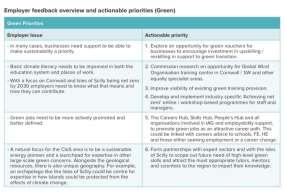


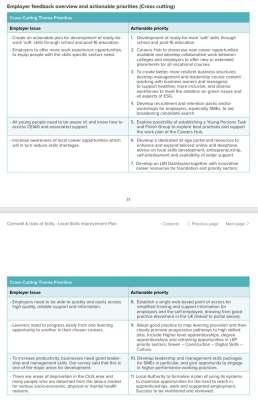


MANUFACTURING, ENGINEERING & MARINE

DIGITAL

Priority Occupations
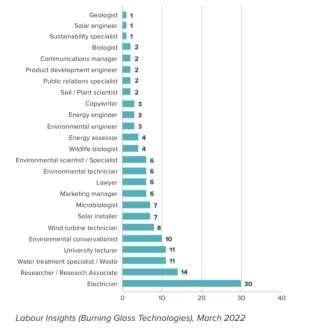

CONSTRUCTION & RETROFIT

Curriculum Mapping
(An extract from 2.7 million lines of Excel data)
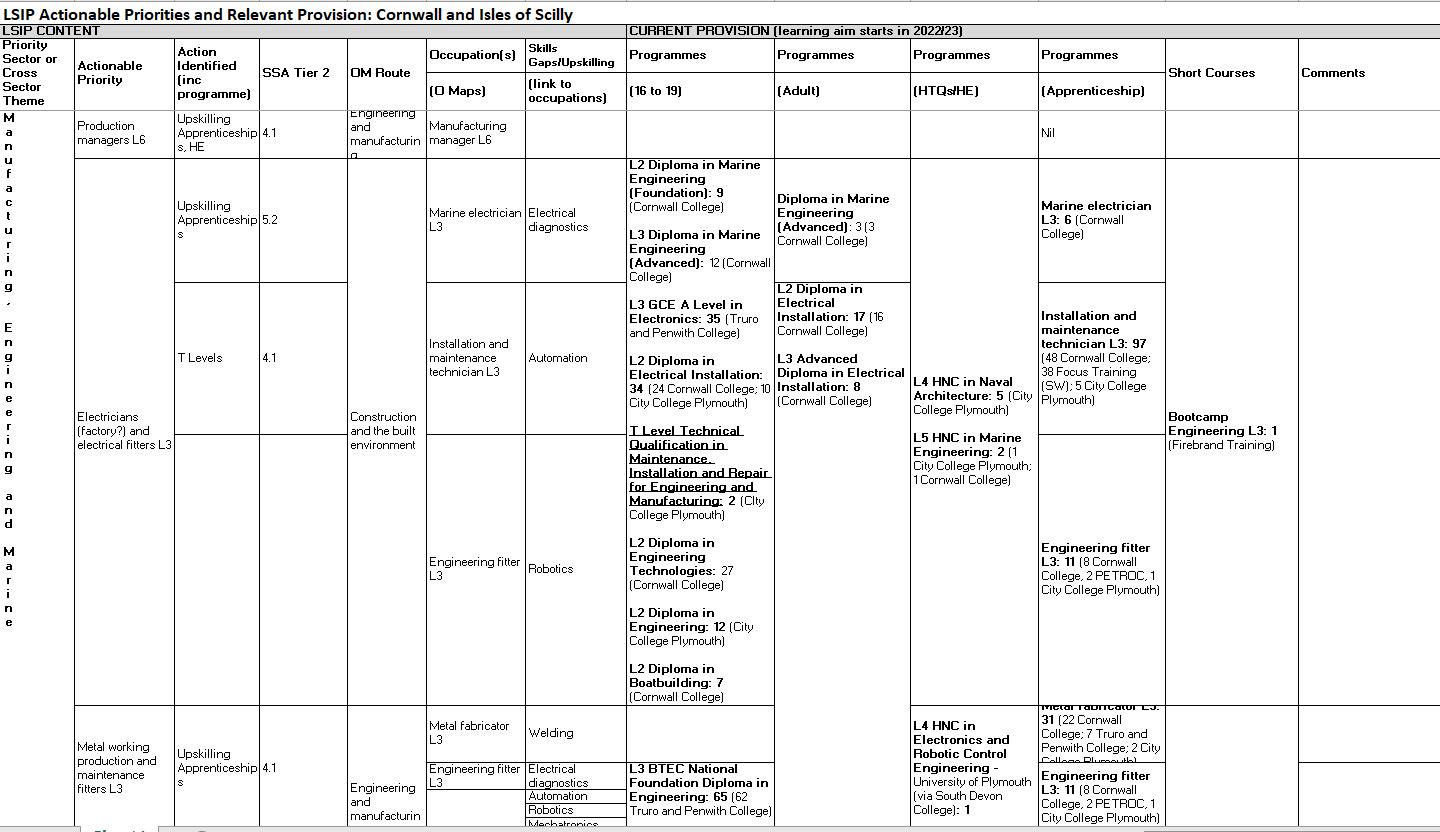

LSIP Immediate Plans
The roadmap Short-term actions:

1. Establish a dedicated LSIP Implementation Task Force, comprising employers, FE, HE, Independent providers, LEP, LAs, industry bodies and experts, and relevant stakeholders. Create Task and Finish groups with specific assignments.
2. Collaborate as a group to develop targeted interventions and programmes that address the identified actionable priorities of the LSIP and identify possible/relevant funding sources including the LSIF.
3. Initiate a robust marketing and awareness campaign to promote the LSIP and engage stakeholders, including businesses, educational institutions, and individuals seeking skill development opportunities.
4. Implement pilot programmes and initiatives to test the effectiveness of proposed actionable priorities and gather feedback for refinement.
5. Establish performance indicators and monitoring mechanisms to track the progress and impact of the LSIP.
Key
Activity Q1 & Q2 2024
• Launch of new series of engagement events
• Working Groups
• Curriculum mapping
• Focus groups with key demographics
• Residents survey
• Meeting with key employers and sector/geographic groups
• Gathering up to date labour market intelligence
• Comms campaign encouraging employers to take up local provision
• Seek feedback from providers
• 2024 impact report
• Roll out of LSIF and close collaboration with partners

Local Skills Improvement Fund - LSIF
Charli Styles
Truro & Penwith College

LOCALSKILLS IMPROVEMENT FUND
Department for Education Update, 19th March 2024

Local Skills Improvement Fund
Objectives:
• To support a local response to the skill priorities set out in the Local Skills Improvement Plan for the area: Cornwall and the Isles of Scilly LSIP | FSB, The Federation of Small Businesses
• This includes new facilities and equipment, the development and delivery of new courses and upskilling teaching staff.’
• ‘To build the capacity of the FE sector to meet the local skills priorities set out in their respective LSIP.’ CIoS Projects:
• 1. Construction and Retrofit – ‘Building Futures’
• 2. Engineering, Manufacturing and Marine – ‘Engineering Futures’
Cross-Sector Themes: Digital Skills, Green Skills, Work Readiness, Employer Awareness of Local Skills Provision
LSIF – Purpose of Investment
1. Increasing skills provision linked to LSIP priorities, with a particular focus on Levels 3 to 5 (ideally accredited) and reducing duplication
2. Supporting employer engagement and business innovation
3. Driving up quality, including staff CPD, knowledge exchange and College leadership and governance
4. A focus on collaboration leading to improved co-ordination and efficiency, ideally quantifying anticipated level of efficiencies
5. Longer term sustainability – how will activities be sustained beyond 2025
GrantFundingAgreement: Funding Awarded:
• Revenue: £606,060.50 (16th September 2023 – 31st March 2024)
• Capital: £606,060.50 (16th September 2023 – 31st March 2024)
• Capital: £1,287,879 (1st April 2024 – 31st March 2025)
‘The grant will be paid only in respect of approved expenditure incurred by Truro and Penwith College for the funded activities set out in Annex F’ ‘Providers are not able to vire funding between revenue and capital allocations and cannot carry funding across financial year 2023/24 into 2024/25.’
CIoS Partners: Truro and Penwith College (Lead), The Cornwall College Group, Cornwall Marine Network, Focus Training
KeyPerformanceIndicators:
Discussion Topics for the Q&A:
• Feedback on the difference LSIF is making, including indications of change, improvements in delivery, changes to ways of working etc. How the collaboration, including the engagement with LSIP and the ERB, is developing including how partners are working through any issues.
• Success stories or any unintended consequences that may have resulted in a negative impact.
• Emerging issues, barriers, challenges or risks to individual project delivery and impact on the wider outcomes these may have. How you are mitigating against such issues and risks with detail on any impact on learner projections and planned expenditure.
The
Cornwall College Group

Local Skills Improvement Fund
Local Skills Improvement Fund

£865k Capital and £428k Revenue investment:
- Construction & Retro-fit
- Manufacturing, Engineering & Marine

Local Skills Improvement Fund – Phase 1

Machine shop refurbishment and new equipment at Camborne

Local Skills Improvement Fund - New L3+ provision:

New apprenticeships:
• Low Carbon Heating Technician Apprenticeship Level 3
• Refrigeration Air Conditioning and Heat Pump Engineering Technician Apprenticeship Level 3
• Junior Energy Technician Apprenticeship Level 3
• HNC Engineering Apprenticeship Level 4
Local Skills Improvement Fund - New L3+ provision:

New courses:
• Air Source Heat Pumps
• Solar Thermal Hot Water
• Requirements for the installation of Electric Vehicle Charging Points
• Installation of Solar Photovoltaic Systems
• CNC Machining
• C&G Mig Welding 3268-205 and BS4872 Coding
• Maritime and Coastguard Agency courses
• HNC Professional Superyacht Engineer

Green Skills
Solar PV
Electrical Vehicle
Charging
Electrical Energy
Storage Systems
Air Source Heat Pump







Local Skills Investment Fund
2024 Overview of Activity
Cornwall Marine Network




Overview of Events Delivered
• Civil Engineering in Marine and Coastal Environment
• Apprenticeships - Building Skills for Life
• Waves of Progress: Driving an Inclusive Workplace
• Championing a Greener Economy for Cornwall
• Blue Solutions for a Green Tomorrow
• Decarbonising with Green Hydrogen across the South West
• Shadow Minister Roundtable Event
• MOR Foundation – County Collaboration
• MOR Foundation – Regional Collaboration
• Marine Industry, training and Skills Advisory Boards





Civil Engineering in Marine and Coastal Environments
• Partnered with Cormac to deliver these sessions
• Marine and Coastal Waterway Civil Engineering
• Wide range of marine sector businesses attended
• Developing apprenticeship and engineering experiences






Apprenticeships Building Skills for Life
• Delivered during National Apprenticeship Week 2024
• Effective and practical learning pathways into work are key to providing the next generation workforce to businesses
• In fact, many businesses see in-house academies, apprenticeship pathways and ongoing training as a key part to their business growth and security
• Marine Sector offers well paid, highly skilled employment in engineering, business admin, data collection and analysis, conservation, marketing, customer support, technician roles, boat building. . .



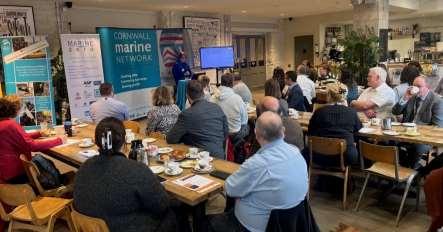


Waves of Progress Driving an Inclusive Workplace
• Promotion of workplace equality and social sustainability as well as discussion of strategies to break down physical and social barriers
• A showcase of success stories and best practice, demonstrating how businesses can positively influence societal well-being
• Understand the unique geographical, social, and economic barriers to inclusion and accessibility that Cornish businesses face






Championing a Greener Economy for Cornwall
• Wide range of speakers discussing their green / sustainable journey
• Many non marine businesses learning more about the sector
• Topics covered: how does a greener economy work? What are the environmental, economic and social benefits of being green in our everyday practices? What can businesses do to implement a greener working model?






Blue Solutions for a Green Tomorrow
• Discover the linkages and interactions that shape the delicate balance between nature and our communities.
• Witness the fusion of tradition and technology skills including Engineering, Artificial Intelligence (AI) and machine learning.
• Learn how digital technologies help us efficiently collect, visualize, and interpret vast amounts of environmental and biological data, propelling marine research into the future.
• Talks from PML , Seiche, Our Only World and PaSD Freeport





Decarbonising with Green Hydrogen across the South West
• Hydrogen Specialists from around Europe presented
• Including Marine and Transport industries
• Collaboration and regular meetings now in place to progress
• The energy transition to support the Net Zero targets will require different forms of energy, training and skills in the future to replace our fossil fuels
• How we can bring green hydrogen to Cornwall and what technologies are already available to support production, distribution, storage and the actual use of hydrogen.



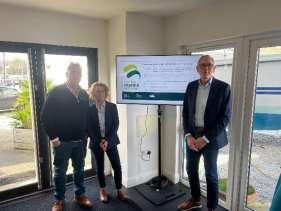


Shadow Minister for Business Roundtable Event
• Opportunities and barriers for the renewables sector and green energies
• The importance of a locally developed and supported supply chain.
• The huge economic benefits of landing a green energy grid connection into Cornwall from Geo thermal, Celtic FLOW.
• Further consistent support for SMEs, innovation, training and skills and apprenticeships also featured heavily in the discussions.
• Tug Dock, Inyanga Marine, Geothermal Engineering (GEL), Celtic Sea Power Falmouth BID, Cornwall Chamber of Commerce and Cornwall Council


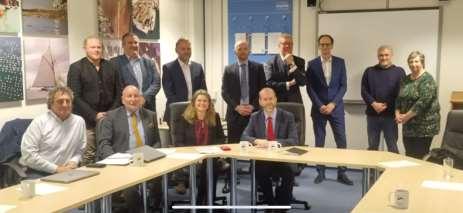
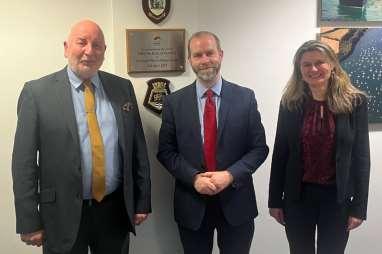


MOR Foundation
County Collaboration
• MOR Foundation to develop long-term quality of life and economic prosperity for Cornwall
• A partnership creating positive social impact and transformative opportunities for communities & businesses
• Dedicated to fostering sustainable growth and empowerment within our community. Through strategic and collaborative partnerships and support, MOR strives to enhance the quality of life for all residents, promote economic prosperity, and create a vibrant and inclusive environment for generations to come.
• Founders include Cornwall Marine Network, Cornwall Council, Celtic Sea Power, Cornwall College, Exeter University, Chamber of Commerce, Lisarb Energy, Orion Project
• A vehicle for potential developers and inward investment to reach social value levels for relevant tenders but to invest in long term, tried and tested training, skills and community solutions.




MOR Foundation
Regional Collaboration
• Following on from county level is to bring in the main stakeholders for Celtic Sea from Wales
• Collaborating with Welsh Council on Supply Chain and skills development for FLOW and adopting MOR Foundation
• Lisarb Energy, Prosperity Energy, Neath and Post Talbot Council, MOR Foundation Director





Marine Sub Sector Advisory
Group Development


• Development of 8 new marine advisory boards to develop training, skills and strategy, They are:
• Ports and Harbours
• Boatbuilding
• Marine Manufacturing
• Marine Leisure
• Aquaculture & Fishing
• Blue economy Coastal protection and eco systems
• Renewables – Wave and tidal - Offshore wind energy
• Ocean Technology - Maritime Technology - Surveillance - Autonomy & Geospatial Data
• Initial messaging and meetings powered by LSIF to bring these important voices together.


LSIF Funding has enabled connections, conversations, strategy and plans to be developed both in the green / sustainable arena as well as the engineering and industrial training and skills that can offer skilled, well paid employment for the future




Stacey Sleeman – People & Prosperity Manager
25 March 2024
Employment and Skills Board
The aim of the Board is to boost economic growth by creating a more appropriate, relevant and highly skilled local workforce, shaping and influencing skills training and support to meet the skills needs of employers across Cornwall and Isles of Scilly:
• Providing a strong leadership role on skills
• Developing a clear understanding of the local labour market, current and future local skills needs and the supply of skills and employment support
• Building on high quality analysis to develop a clear approach to addressing skills and employment challenges within the local area, including the likely skills priorities in the coming decade
• Understanding the wider dependencies in the local area and working together with other parts of the LEP
• Acting as co-ordinator of local skills providers
• Working closely with careers advisory services
• Raising the profile of apprenticeships with local employers and providers
• Advising where skills and labour market resource should be directed to support local employers and residents
• Sharing analysis and best practice, to enable us to learn from each other and tackle wider skills challenges




Local Skills and Labour Market Strategy
We have 4 strategic Objectives:
Inspire: Developing the workforce of tomorrow
Transform: A productive workforce
Innovate: Accelerate the growth and diversification of the economy
Thrive: Opportunity for all
Labour Market and Sector Engagement
• Deep Dives: Green and Digital
• LMI Factsheets
• FE Partnerships
• Government links and partnerships:
• DWP Partnership
• DLUHC (PfPP)
• DfE (SAP, LSIP, Bootcamps, LMI, CD)
• DCMS (DSP)
• Work and Health Unit (Beacon, ICB)
• Employer Group
• Supply Group
Skills and Employability Programmes
• European Social Fund
• Digital Skills Partnership
• Apprenticeship Campaign
• Careers Hub
• Skills Bootcamps
• Shared Prosperity Fund Year 1
• Multiply
• Adult and Community Education
• Future Skills Institute
• Education Business Partnership
Skills – What next?
• LEP Integration, Economic Forum. Labour and Worforce Board
• Devolution AEB
• Local Skills Improvement Plans
• Good Growth Year 2 and 3 commissioning (skills within communities and business and Y3 people strand)
• European Social Fund – end of Programme
• Digital Skills Academy
• Cornwall Opportunities
Cornwall Council Cabinet approved the Level 2 Devolution Deal for Cornwall on 28th Nov 2023.
Linda Taylor signed the Deal in Westminster on 13th Dec 2023.
What does this mean?
Adult Education Budget (AEB) is the largest part of the devolution deal and currently estimated to be £10.2m. There is likely to be an additional allocation for Free Courses for Jobs of £800k. This will be from 2025/26
What is AEB
Non-apprenticeshipAEB, Community Learning and Discretionary Learner Support has been combined into a singleAdult Education Budget (AEB) to support disadvantaged and or lowskilled people aged 19+. Recently this has been linked to the Free Skills for Jobs Budget. It will be called the Adult National Skills Fund in the future with some policy tweaks in 2024/25.
AEB’s principal purpose is to engage adults and provide them with skills and learning needed to help them move into work, an apprenticeship or further learning.
AEB also enables more tailored programmes of learning, which do not need to include a qualification, to help those furthest from learning or the workplace. This recognises the value to communities of engaged citizens.
Devolved AEB will allow Cornwall to ensure strategic alignment and more effective commissioning of skills programmes to meet local needs.
The Four Legal entitlements/Residency
1
2
English and maths, up to and including level 2, for individuals aged 19 and over, who have not previously attained a GCSE grade 4 (C), or higher
first full qualification at level 2 for individuals aged 19 to 23
3
4 19+ 1923 1923 19+
first full qualification at level 3 for individuals aged 19 to 23
Essential digital skills qualifications, up to and including level 1, for individuals aged 19 and over, who have digital skills assessed at below level 1
How will Cornwall Deliver AEB?
Cornwall is required to develop an AEB Strategic Skills Plan for post 19 education alongside a Commissioning Plan and an Accountability and Assurance Framework. This must demonstrate:
• How devolution will improve AEB outcomes.
• Provide a clear understanding of what and who is delivering AEB now, any gaps, and how that needs to change to match local labour market needs.
• The AEB Strategic Skills Plan will be developed through engagement with stakeholders and will provide all stakeholders with an opportunity to inform the Strategic Skills Plan by drawing together, a shared agreement about the broad shape of provision and expectations of how demand from local employers will change over time.
Strategic Alignment
Overarching governance arrangements will ensure strategic alignment with all existing skills programmes and Strategies for the whole of Cornwall, Economic Development and Skills and Employment:
Shared Prosperity Fund:
People and Skills
People Hub
Digital
Green Skills
Youth Engagement
Multiply
Business Support
Growth Hub
Communities and Place
Construction Skills Hub
Community Skills Hubs
Other Skills Programmes
Skills Bootcamps
Local Skills Improvement Fund
Workwell
Careers Hub
Universal Support
Restart
AEB in Cornwall: Subjects
Crafts, Creative Arts and Design Health and Social Care
Foundations for Learning and Life
Sport, Leisure and Recreation
Teaching &
Lecturing
Engineering
Building and Construction
Current timeline
January to February 2024
Consultation and engagement with stakeholders in Cornwall to ensure we build an accurate understanding of current commissioned activity, priorities emerging from the LSIP, future skills analysis and policy changes so that we can identify our commissioning priorities.
• Stakeholder Webinar – 26th January 2024
• Launch of Let’s Talk engagement – 1st February – 28rd February 2024. We will send a link to all participants Cornwall Council’s AEB team, alongside the above activity, will prepare to meet the DfE Readiness Requirements and take information through the Council’s own Governance as required.
March 2024
Develop a Strategic Skills Plan for submission to DfE via Cornwall Council Governance. Utilising the evidence base identified in the consultation, set benchmarks for improvement and take account of the effect any changes will have on learners, learning providers and businesses. Outline the early commissioning model and take account of the LSIP.
• Economic Growth and Development OSC – 19th March
May - September 2024
Take draft submission to DfE via Cornwall Council Governance. The AEB team will be working with internal colleagues to develop a Contracting/Funding Agreement, payment, data collection and contract management processes, including quality assurance.
• Cabinet - 8th May 2024
• Submit Readiness requirements to DfE (subject to Cabinet approval) – 31st May 2024
• Develop final operational policies and procedures
• Develop Year 1 Commissioning Plan – approval from Cabinet/Growth Board
October 2024
Devolution of Powers awarded.
October 2024 - January 2025
Start procurement process. To award contracts in April 2025. A contract holder must be able to report data via the ESFA systems and able to meet the requirements of the OFSTED inspection framework
Strategic Approach – what we asked?
Statutory Requirements: Continue to fund statutory legal requirements
Funding Rates: What are the current barriers to delivery regarding funding eligibility rates. What changes could Cornwall Council make to support Learning Partners?
Full Funding: Who should be fully funded/co-funded?
Additional Learner Support and Learning Support: What are the current barriers to delivery where additional or learning support is required?
Priority Groups: SEND, Care Leavers – others??
Innovation Pot: Test activity around payment models, rates and eligibility, niche provision or delivery models.
Collaboration: How do you want us to engage with you?
Community Learning: primary aim of engaging hard to reach learners, providing basic skills and progression to further learning and/or work. Is this correct?
Sub-contracting: collaborative partnerships, outline plans for sub-contracting.
Routes to Market: Mix of Grant Funding and Open procurement. 1 year contracts with options to extend for a further 2 years.
Supported by annual delivery plans.
Cross Border Learners: How the Council will support learners on the border(s) of Cornwall.


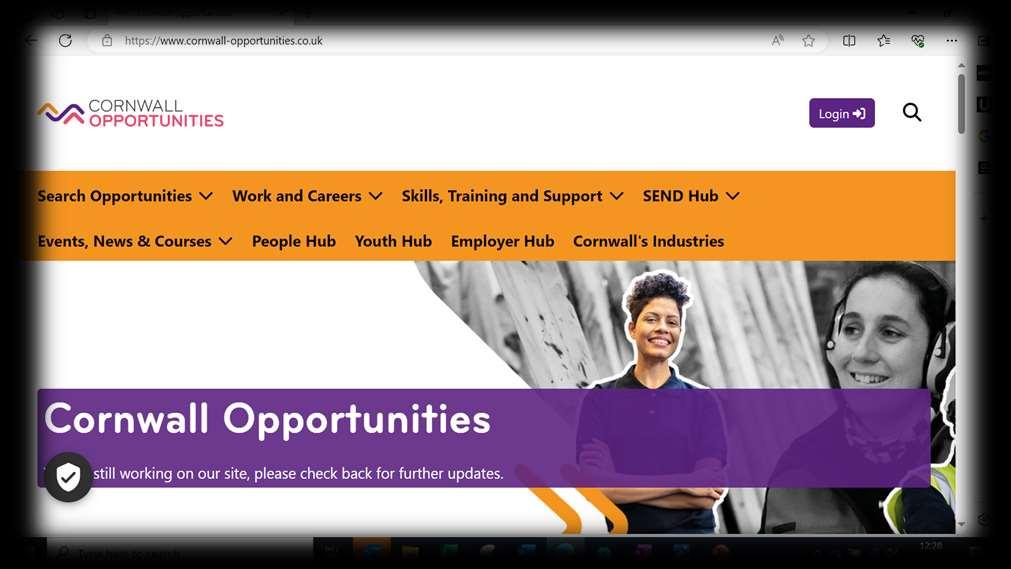


Social media @CornwallOpps
Marketing and promotion is building
New Cornwall Opportunities Careers Magazine planned with x2 issues per year

Job & Apprenticeship search facility
Course search
Explore local sectors / labour market information
Key Features
Youth Hub & SEND Hub
Employer Spotlights & Provider Spotlights – to come
Employer hub – help to grow & attract early talent
Career pathways for all ages, so information for parents as well
Signposting to careers, training and employability information and support e.g. People Hub, NCS.
Events & local courses for individuals and businesses.

Some Key Stats
5,637 total users to-date with 3,500 users during March alone.
Over 48,000 page views
Over 2,755 job searches and 586 apprenticeship searches to date.





Q & A

Comfort Break
10 mins


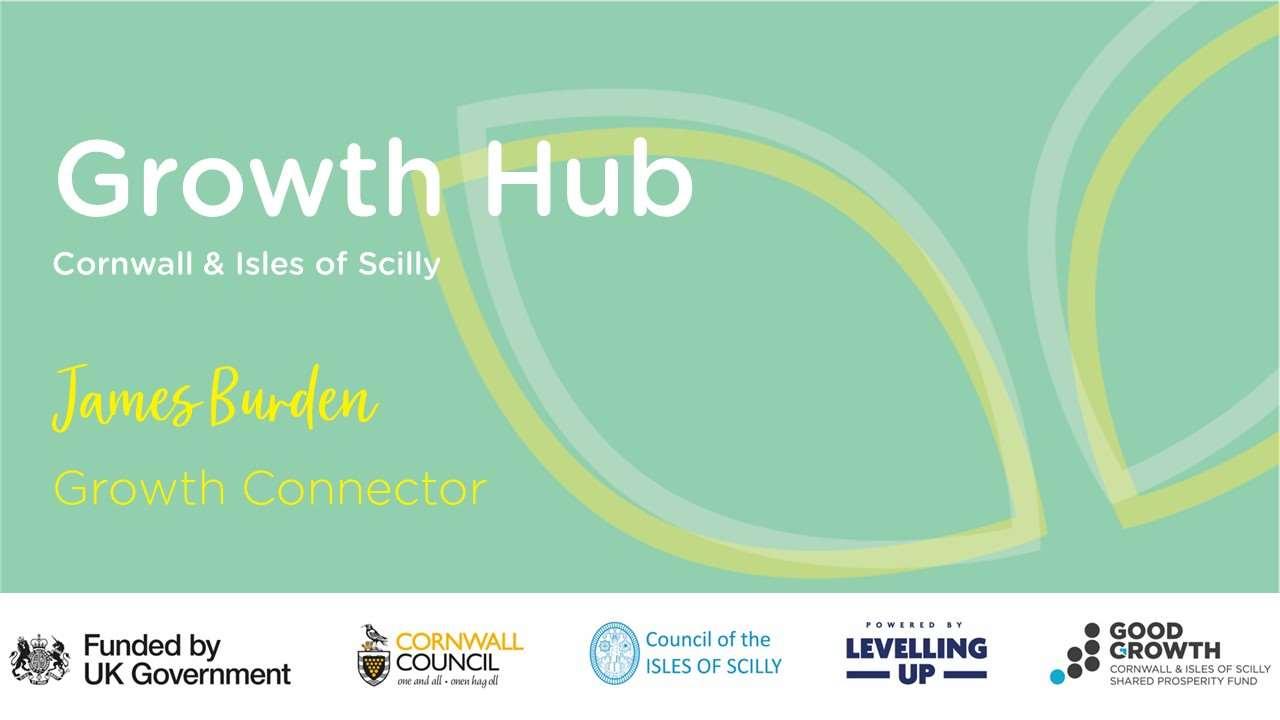
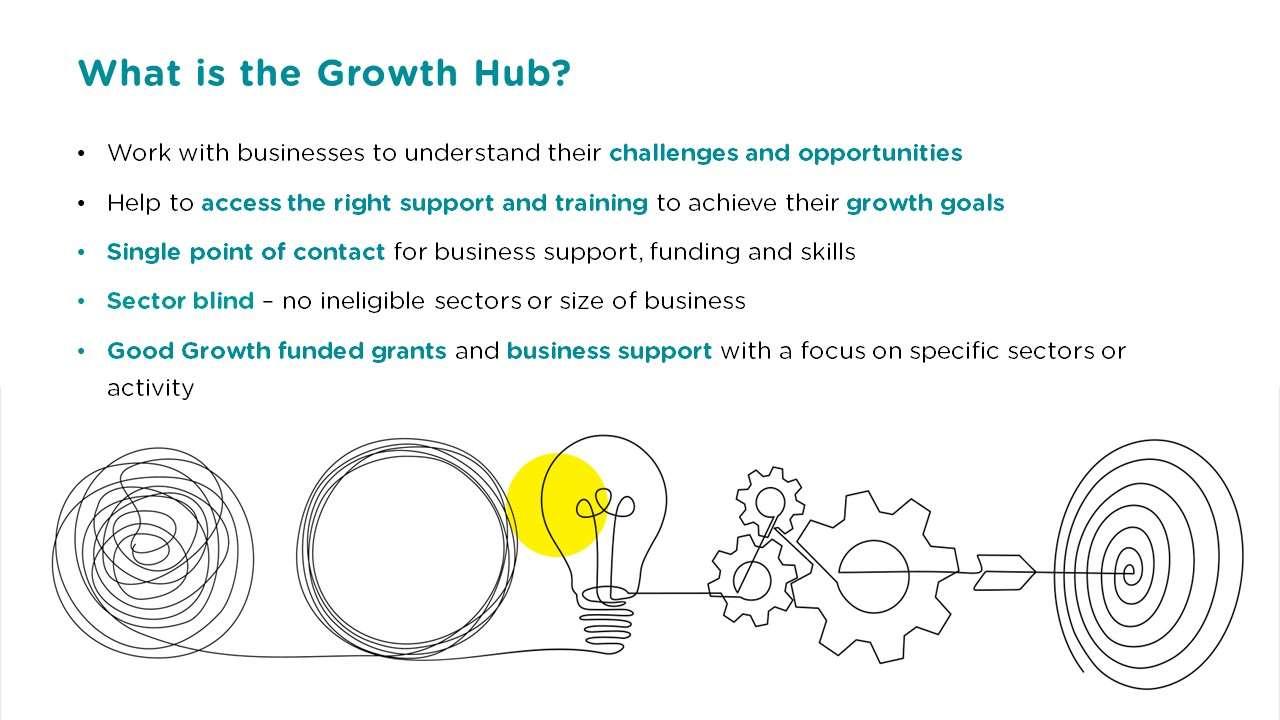

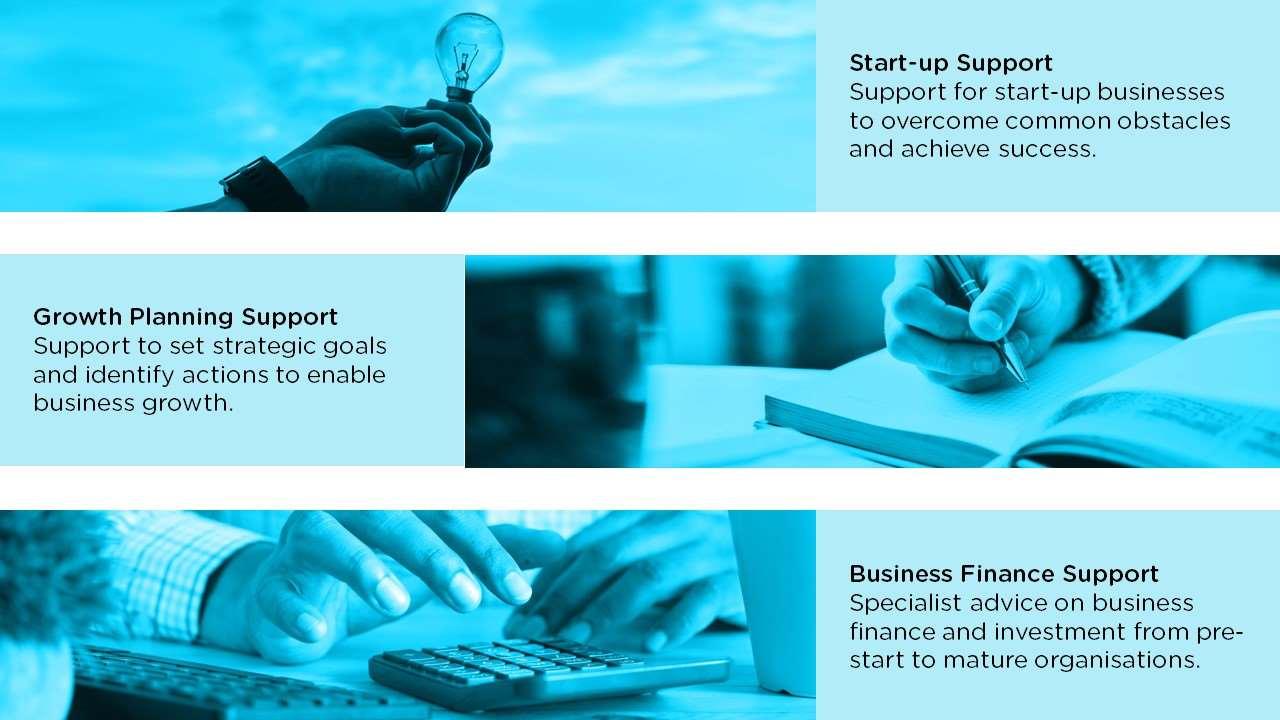




Workshop

What will good look like this time next year?

Please discuss and prepare to feed back on:
Table 1: What will excellent “work readiness” look like for employers?
Table 2: What help do businesses need to access “training”?
Table 3: Thoughts on the LSIP / LSIF process. What would you do?
Table 4: Ideas for getting businesses more engaged in skills.
Table 5: What do strong links between employers and key providers look like?

Feedback

LSIP Future Plans
The roadmap Medium-term actions:

1. Scale up successful pilot programmes and initiatives to reach a broader audience and address a wider range of skill shortages and gaps.
2. Strengthen partnerships with employers, industry associations, and educational institutions to ensure alignment between skills provision and industry needs.
3. Enhance collaboration with LAs to integrate the LSIP priorities into local economic development plans and strategies.
4. Invest in the development of collaborative marketing campaigns to support skill development in key occupations.
5. Continuously evaluate the effectiveness of interventions and adjust strategies based on feedback and emerging trends.
6. Explore opportunities for regional and national funding to supplement LSIP initiatives and maximize resources.

LSIP Future Plans
The roadmap Long-term actions:

1. Consolidate the progress made in addressing skill shortages and gaps by refining and expanding successful interventions.
2. Evaluate the impact of the LSIP on economic growth indicators, such as increased employment rates, higher productivity, and improved competitiveness.
3. Establish long-term partnerships and collaborations with employers and educational institutions to ensure sustainability of skills development efforts beyond the LSIP timeframe.
4. Publish regular reports and updates on the LSIP’s achievements and outcomes to foster transparency and accountability.

• Talk to us
• Visit our website
• Online forums
• Round tables
• Surveys

• Events….. https://www.fsb.org.uk/local-skills-improvement-plans.html
Quarterly face to face events all 10am to 1pm (with a networking buffet)
• Thursday 27 June - Camborne College, Trevenson Rd, Pool, Redruth TR15
• Tuesday 24 September - Truro & Penwith College, Truro College, College Road, Truro, TR1 3XX
• Tuesday 10 December – Duchy College, Stoke Climsland, Callington, Cornwall, PL17 8PB

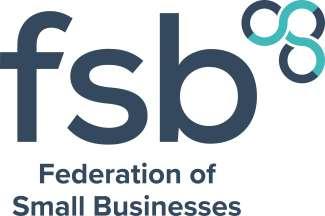




Thank you to the team at the College!


